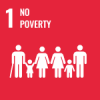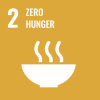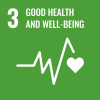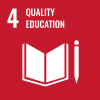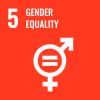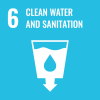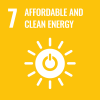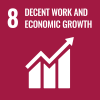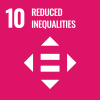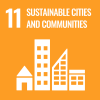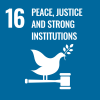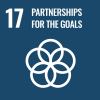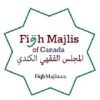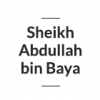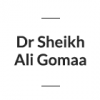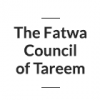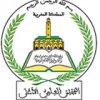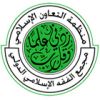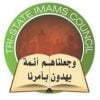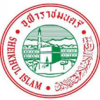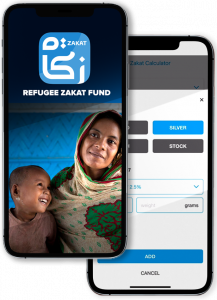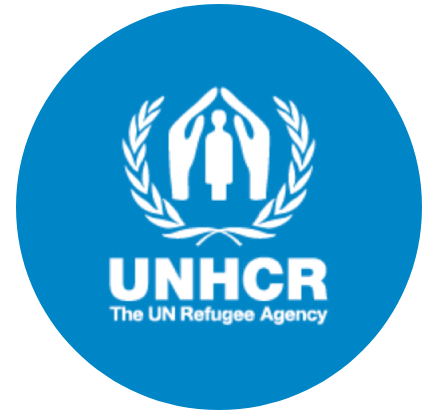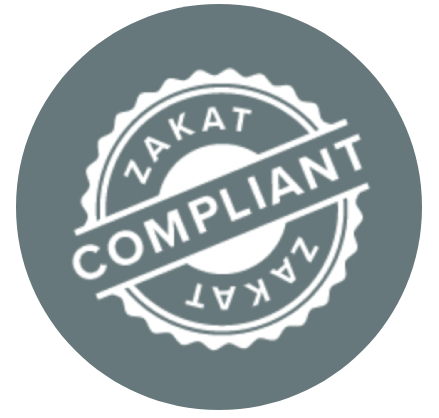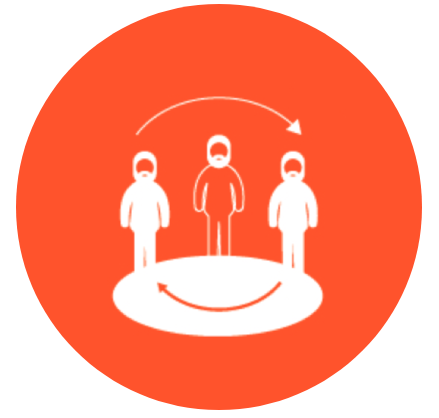Foreword by Mr. Filippo Grandi
United Nations High Commissioner for Refugees
Since 2017, the cumulative number of Zakat and Sadaqah beneficiaries is more than 6 million people – reinforcing the strong solidarity that exists throughout the Islamic world with refugees.
Foreword by H.E. Abdul Aziz Al Ghurair
Founder, Abdul Aziz Al Ghurair Refugee Education Fund
As refugees and vulnerable youth are at the core of our mission, it was only natural that we partner with UNHCR, and our partnership has been successful since 2017.
Foreword by Dr. Ayedh Dabsan Al Qahtani
CEO of the Thani Bin Abdullah Foundation for Humanity and UNHCR Patron
It is essential to continue supporting those who are forced to flee, as the Holy Qur’an is unequivocal in its call to assist and protect vulnerable people, including the poor, the needy, the debtors, and the wayfarers.
Executive Summary
Islamic Philanthropy in Service of Refugees
UNHCR assisted more than 1.5 million refugees and IDPs in 21 countries with Zakat and Sadaqah contributions received in 2022.
Impact of the Refugee Zakat Fund
Zakat and Sadaqah Distribution Countries
Stories from the Field
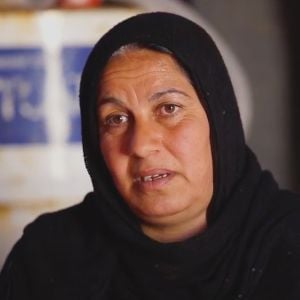
Om Saker
Iraqi Returnee
Struggling to provide for her children amid sickness and hardship.
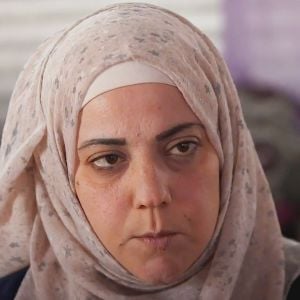
Shatha
Syrian Refugee in Jordan
An example of resilience and commitment to caring for her family.
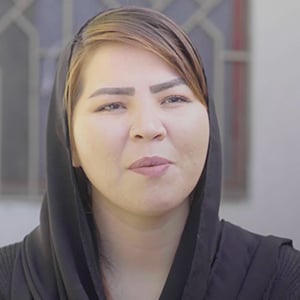
Fatima
Afghan Refugee in Pakistan
Fatima, fleeing conflict in her country, strives to provide for her family of 9.
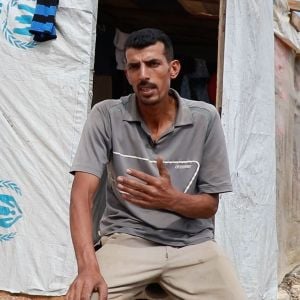
Hassan
Syrian Refugee in Lebanon
Refugee father struggling to provide for his family amid harsh conditions.
Islamic Philanthropy in the Service of

Key Highlights
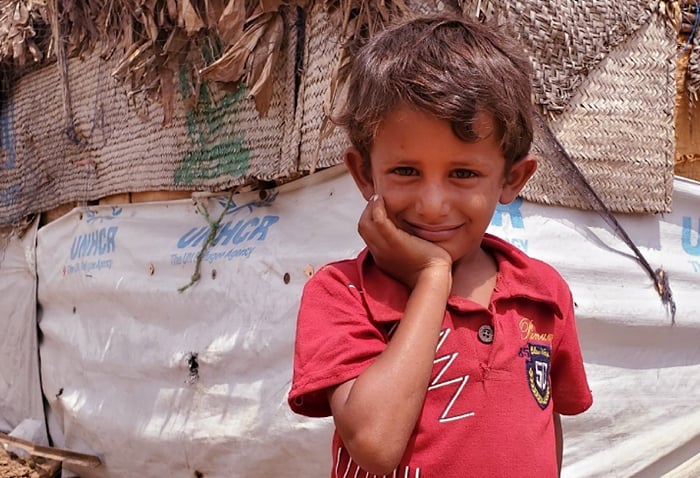
Campaigns
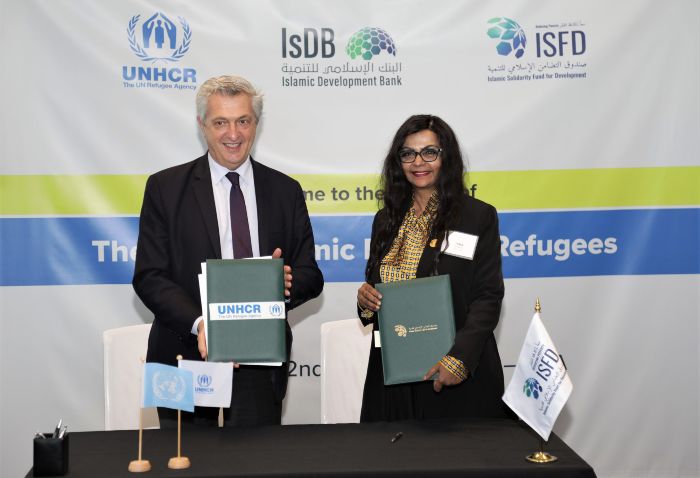
Global Islamic Fund for Refugees
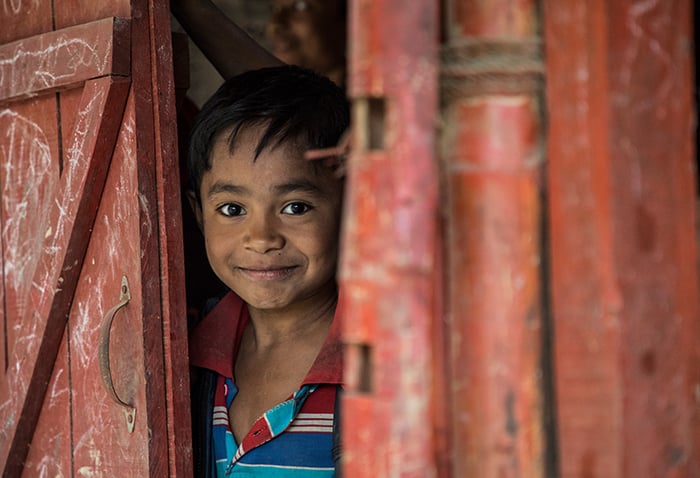
Compliance Review
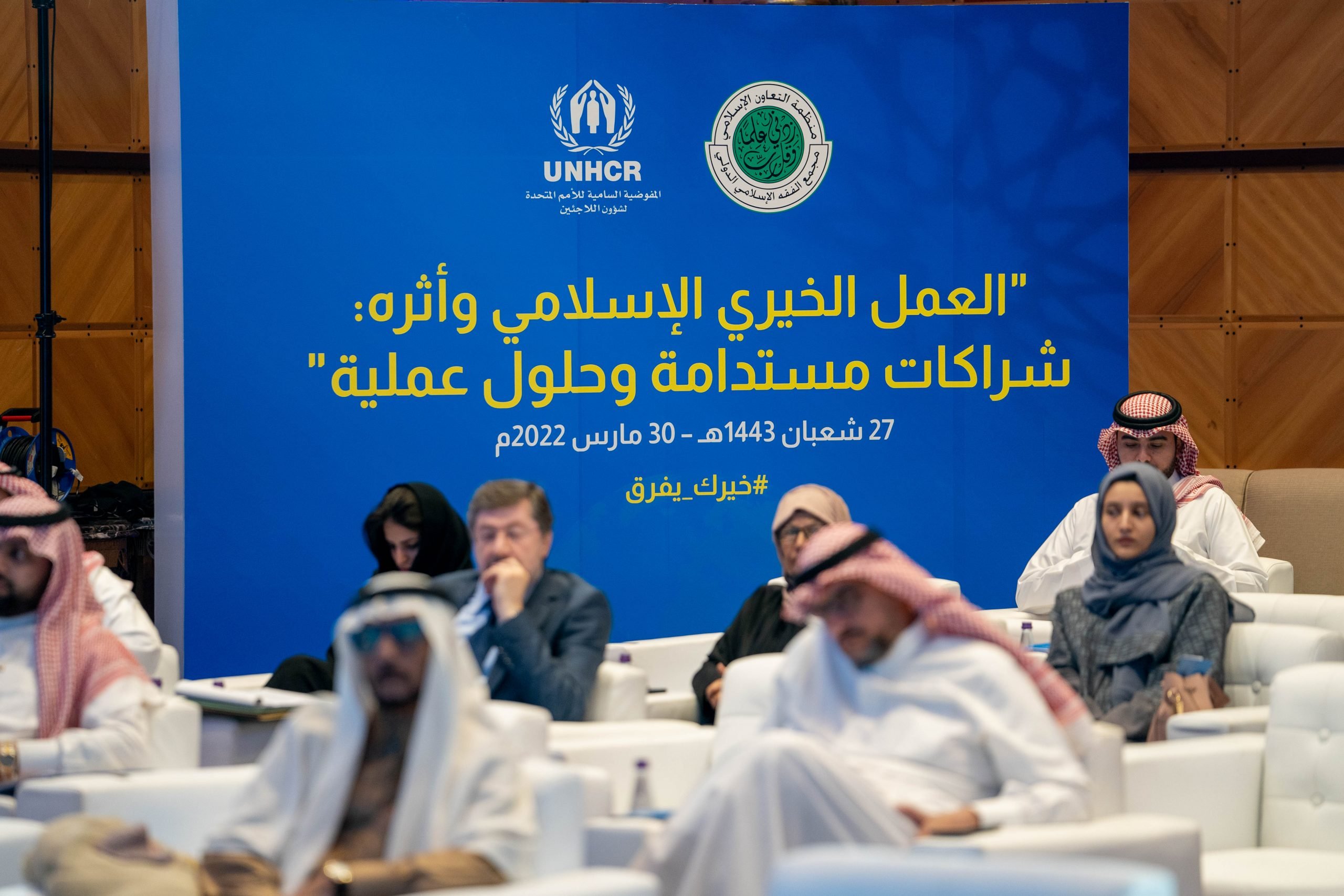
Report Launches
Islamic Philanthropy Partners Across the Globe
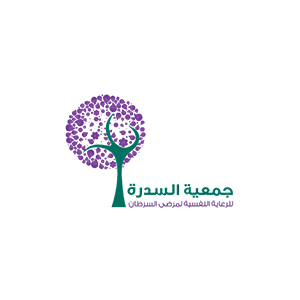
Sheikha Azza Alsabah - Kuwait
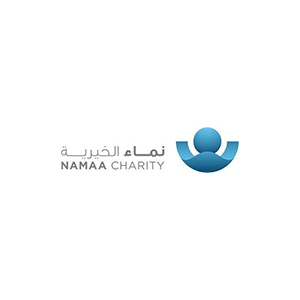
Nama Charity - Kuwait
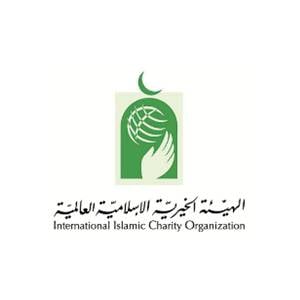
International Islamic Charity Organization - Kuwait
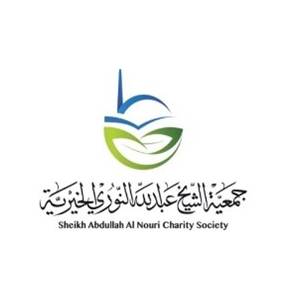
Sheikh Abdullah Al Nouri Charity Society - Kuwait
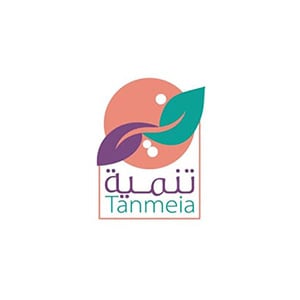
Tanmeia Foundation - Kuwait
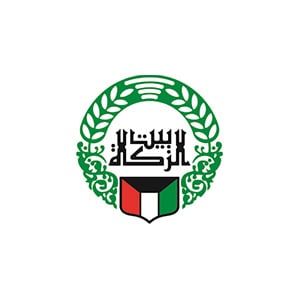
Zakat House of Kuwait - Kuwait
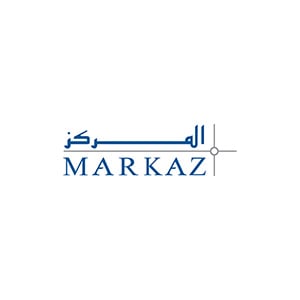
Kuwait Financial Centre – Markaz - Kuwait
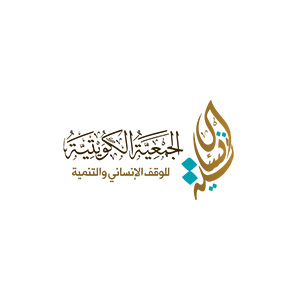
Kuwait Society for Humanitarian Relief - Kuwait
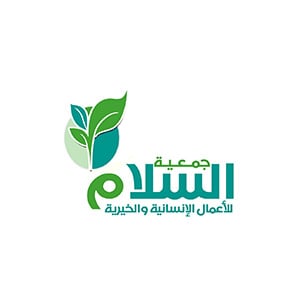
Al Salam Charity - Kuwait
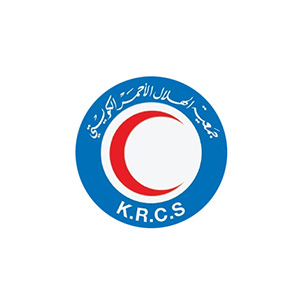
Kuwait Red Crescent Society - Kuwait
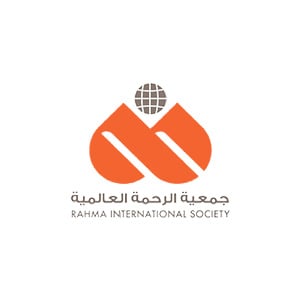
Rahma International Society - Kuwait
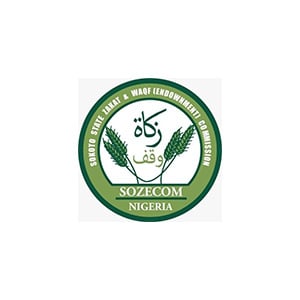
SOZECOM - Nigeria
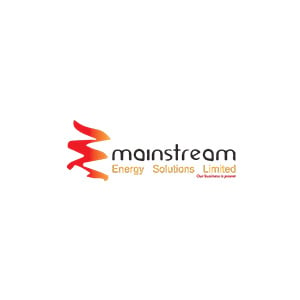
Mainstream Energy - Nigeria
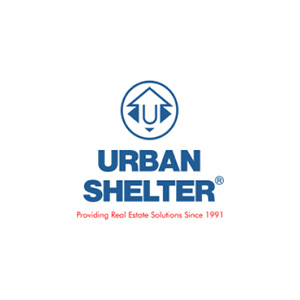
Urban Shelter Nigeria - Nigeria
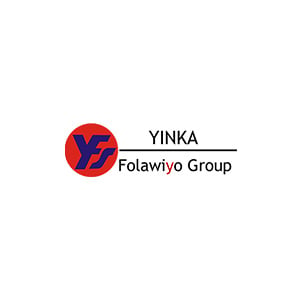
Yinka Folawiyo Group - Nigeria
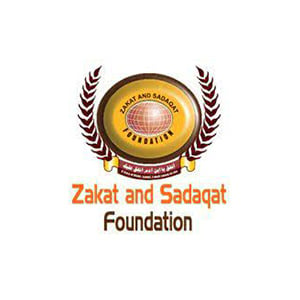
Zakat and Sadaqat Foundation - Nigeria
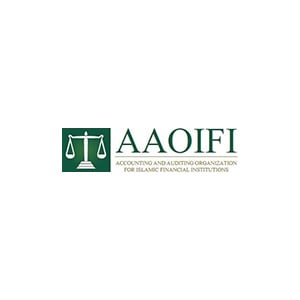
AAOIFI - Bahrain
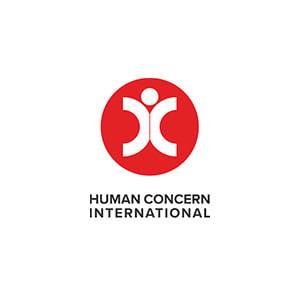
Human Concern International - Canada
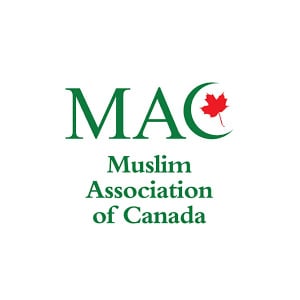
The Muslim Association of Canada - Canada
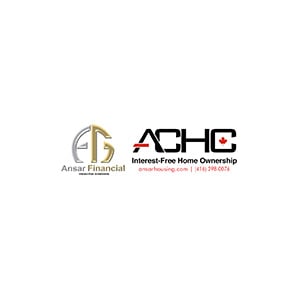
Ansar Co-operative Housing Corporation - Canada
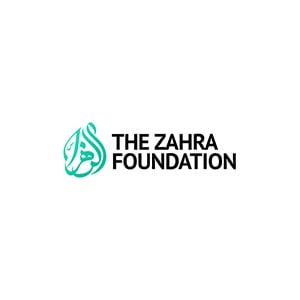
The Zahra Foundation - Canada
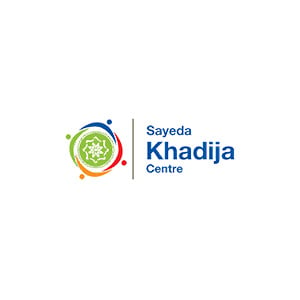
Sayeda Khadijah Centre - Canada
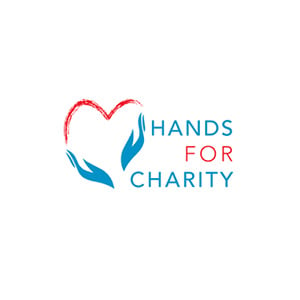
Hands for Charity - Canada
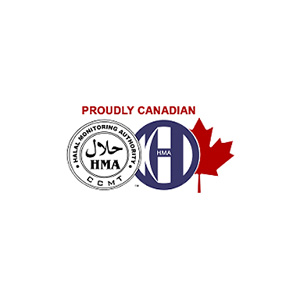
Halal Monitoring Authority - Canada
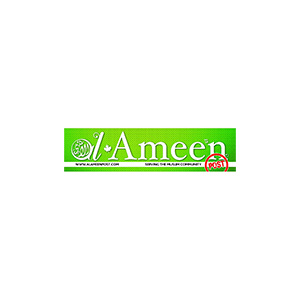
Alameen Post - Canada
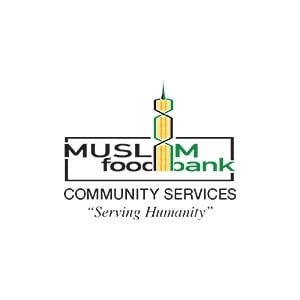
Muslim Food Bank - Canada
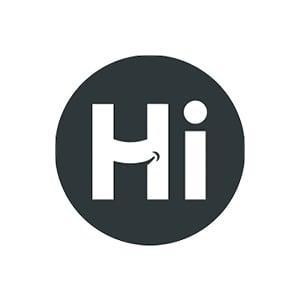
Humaniti - Canada
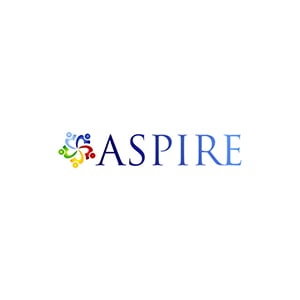
ASPIRE for Hope Society - Canada
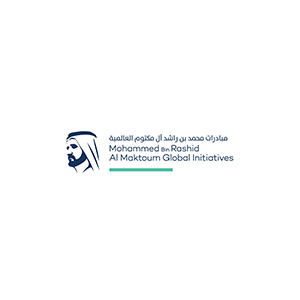
Mohammed Bin Rashid Al Maktoum Global Initiatives - UAE
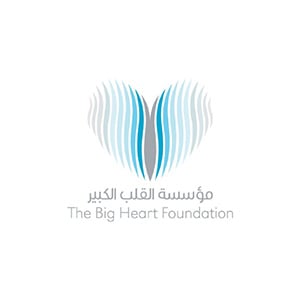
The Big Heart Foundation - UAE
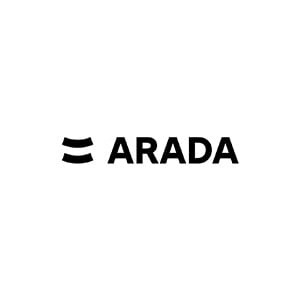
Arada - UAE
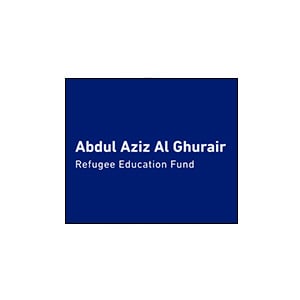
Abdul Aziz Al Ghurair Refugee Education Fund - UAE
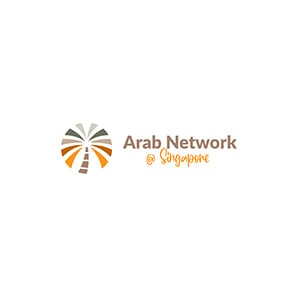
Arab Network @ Singapore - Singapore
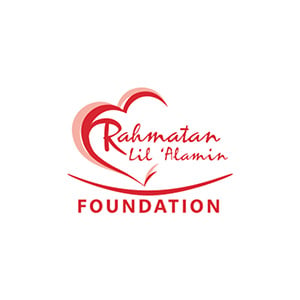
Rahmatan Lil Alamin Foundation - Singapore
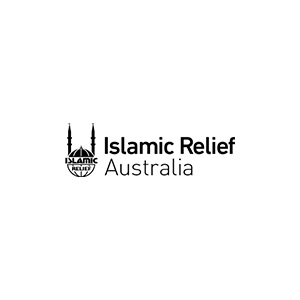
Islamic Relief Australia - Australia
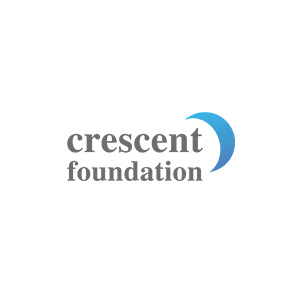
Crescent Foundation - Australia
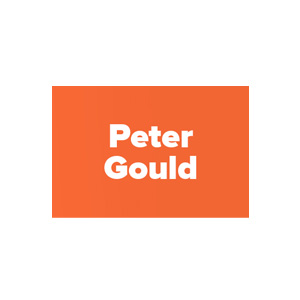
Peter Gould - Australia
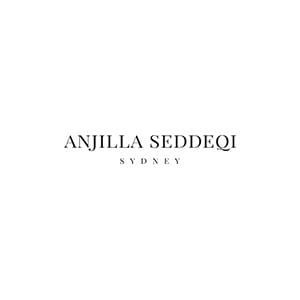
Anjilla Seddeqi - Australia
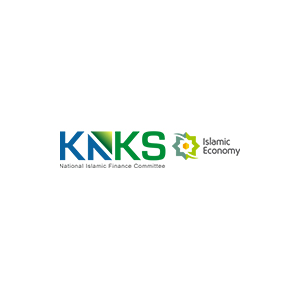
KNEKS - Indonesia
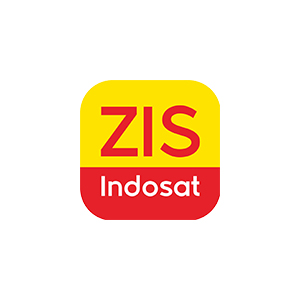
BP ZIS Indosat - Indonesia
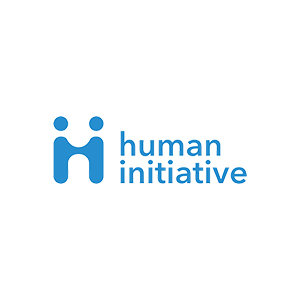
Human Initiative - Indonesia
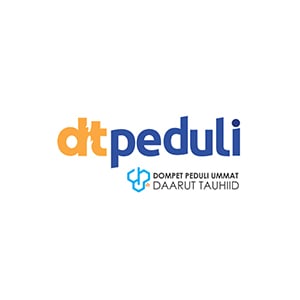
DT Peduli - Indonesia
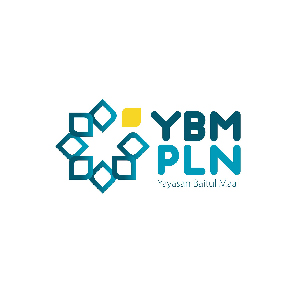
YBM PLN - Indonesia
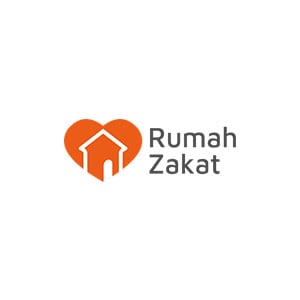
Rumah Zakat - Indonesia
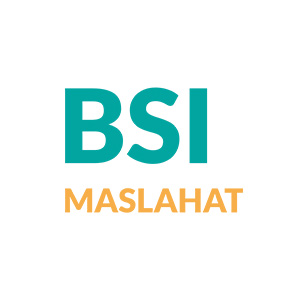
BSI Maslahat - Indonesia
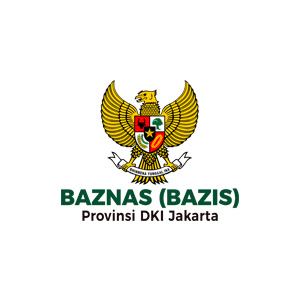
BAZNAS (BAZIS) - Indonesia
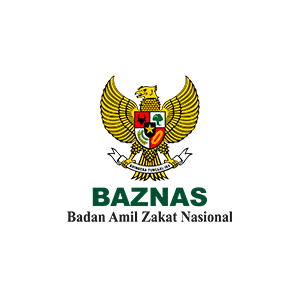
BAZNAS - Indonesia
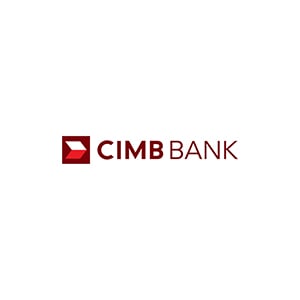
CIMB Bank - Malaysia
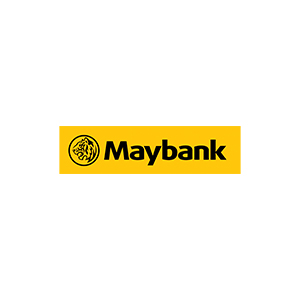
Maybank - Malaysia
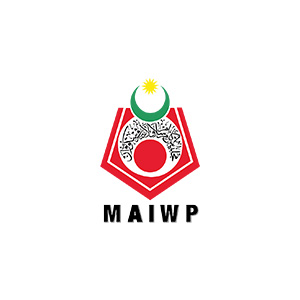
MAIWP - Malaysia
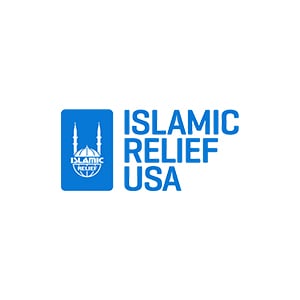
Islamic Relief USA - USA
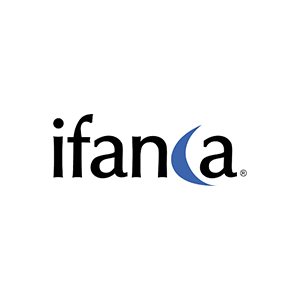
IFANCA - USA
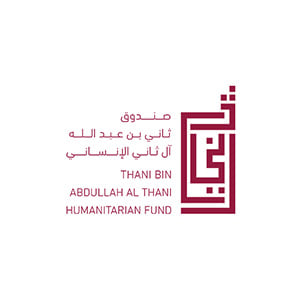
Sheikh Thani bin Abdullah Al Thani Humanitarian Fund - Qatar
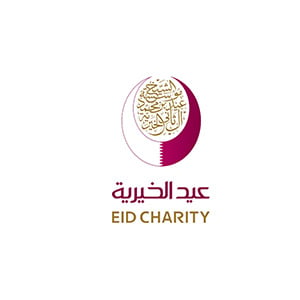
Eid Charity - Qatar
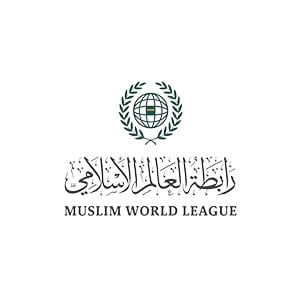
Muslim World League - KSA
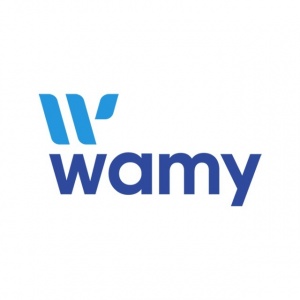
World Assembly of Muslim Youth - KSA
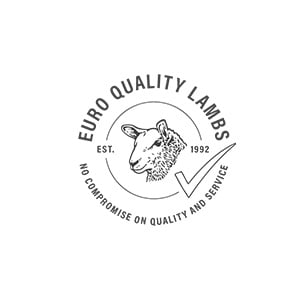
Euro Quality Foundation - United Kingdom

Qatar Charity - Qatar
Partnerships In Focus
Abdul Aziz Al Ghurair Refugee Education Fund
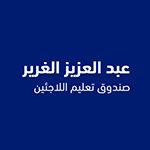
The Abdul Aziz Al Ghurair Refugee Education Fund was established in 2018 to benefit Syrian refugee youth in Jordan, Lebanon as well as children affected by war and disasters residing in the UAE.
H.E. Sheikh Thani bin Abdullah Al-Thani
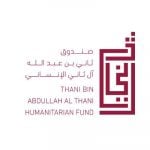
H.E. Sheikh Thani bin Abdullah Al-Thani is a prominent businessman and philanthropist in Qatar who has supported more than 320,000 refugees and displaced persons since 2015, through UNHCR’s programmes.
Eid Charity
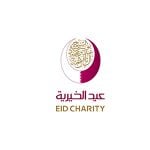
The Sheikh Eid Bin Muhammad Al Thani Charitable Foundation is a Qatari humanitarian organizations that is concerned with the welfare of people in Qatar and abroad, and has been established in 1995.
Mohammed bin Rashid Al Maktoum Global Initiatives
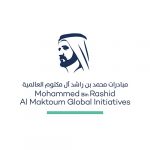
MBRGI, founded in 2015, oversees more than 30 humanitarian and developmental initiatives around the world, with a special focus on supporting vulnerable and disadvantaged communities.
Endorsements and Fatwas
The Refugee Zakat Fund
The Refugee Zakat Fund, launched in 2019 by UNHCR, has been a key partnership mechanism – effective, compliant, and trusted by institutions and individuals. Since its piloting in 2017, over 6 million beneficiaries were assisted, thanks to more than $192 million received through the Refugee Zakat Fund, 78% of which has been Zakat.
UNHCR’s Refugee Zakat Fund is subject to rigorous governance and oversight, ensuring transparency at every step, leading to the provision of assistance.
The Refugee Zakat Fund
The Refugee Zakat Fund, launched in 2019 by UNHCR, has been a key partnership mechanism – effective, compliant, and trusted by institutions and individuals. Since its piloting in 2017, over 6 million beneficiaries were assisted, thanks to more than $192 million received through the Refugee Zakat Fund, more than 78% of which has been Zakat.
UNHCR’s Refugee Zakat Fund is subject to rigorous governance and oversight, ensuring transparency at every step, leading to the provision of assistance.
Management and accountability: Zakat funds are kept in a dedicated interest-free bank account in Geneva.
Traceability: Zakat funds are strictly dedicated to Zakat-compliant distribution activities of cash and goods in identified countries with growing humanitarian needs.
Transparency: UNHCR publishes bi-annual Islamic Philanthropy reports, and partners are provided with customized reports based on where they wanted their funds to be utilized.
Fatwas: the Fund is endorsed by 15 fatwas from prominent scholars and institutions globally, including the Muslim World League, OIC’s International Islamic Fiqh Academy (IIFA) and Al-Azhar’s Islamic Research Academy.
Infrastructure: follows a 100% Zakat-distribution policy to eligible beneficiaries as recommended by the fatwas.
Monitoring and evaluation: annual internal compliance review is conducted by an expert Islamic Philanthropy team in UNHCR, and an annual external compliance review is conducted by a third party which publishes a report about the findings of this review.
Vulnerability assessment framework: to identify eligible beneficiaries.
Post-distribution monitoring: annually to measure impact and improve implementation.
Innovation: use of technology in distribution to increase efficiency and minimize fraud and duplication.
Executive Summary
Introduction
This UNHCR report highlights the global impact of Zakat and Sadaqah contributions – received via UNHCR’s Refugee Zakat Fund in 2022 – on the lives of refugees and internally displaced persons (IDPs). As the number of forcibly displaced persons across the world crosses 100 million due to conflict and climate change, there is a greater necessity to innovate and seek alternative solutions to cover their immediate humanitarian and developmental needs.
Overall Impact of Zakat and Sadaqah Contributions
UNHCR assisted more than 1.5 million refugees and IDPs in 21 countries with Zakat and Sadaqah contributions received in 2022. Partners such as His Excellency Sheikh Thani bin Abdullah bin Thani Al Thani and Mohammed Bin Rashid Al Maktoum Global Initiatives (MBRGI) were instrumental in achieving this impact – in addition to UNHCR’s global Ramadan and winter campaigns, and the Refugee Zakat Fund mobile app.
Since the piloting of the Refugee Zakat Fund in 2017, Zakat and Sadaqah contributions have enabled UNHCR to support over 6 million refugees and IDPs in 26 countries.
Moreover, Zakat and Sadaqah funds received by UNHCR are contributing to the realization of several Sustainable Development Goals (SDGs). These include, most notably, No Poverty (SDG 1), Zero Hunger (SDG 2), Good Health and Well-Being (SDG 3), Quality Education (SDG 4), Gender Equality (SDG 5), and Clean Water and Sanitation (SDG 6).
Impact of Zakat
In 2022, Zakat contributions received through the Refugee Zakat Fund helped more than 727,000 beneficiaries in 17 countries, including refugees in Afghanistan, Algeria, Bangladesh, Egypt, India, Indonesia, Iran, Jordan, Lebanon, Malaysia, Mauritania, Pakistan, Somalia, and Tunisia. These funds have also helped IDPs in Afghanistan, Iraq, Nigeria, Somalia, and Yemen. This was made possible by $21.4 million received in Zakat contributions during 2022. These funds were allocated in accordance with the 100% Zakat distribution policy, as per the 15 fatwas UNHCR has received over the past several years.
Since the piloting of the Refugee Zakat Fund in 2017, Zakat contributions have assisted more than 4 million refugees and IDPs in 18 countries.
Impact of Sadaqah
In 2022, Sadaqah funds helped more than 839,000 beneficiaries in 15 countries, including refugees in Afghanistan, Bangladesh, Greece, India, Iran, Jordan, Kenya, Lebanon, Malaysia, Namibia, Nigeria, Pakistan, and Tunisia. Additionally, they have helped IDPs in Afghanistan, Nigeria, Ukraine, and Yemen. This was made possible by $16.7 million received in Sadaqah contributions during 2022.
Since the piloting of the Refugee Zakat Fund in 2017, Sadaqah contributions have
assisted more than 1.9 million refugees and IDPs in 20 countries.
Events
March: Islamic Philanthropy Annual Report 2022 launch
Ahead of Ramadan 2022, UNHCR launched its Islamic Philanthropy Annual Report 2022 through a series of events and webinars held in Indonesia, KSA, Nigeria, United Kingdom, and Canada. These events were organized in collaboration with Islamic institutions as well as charitable and governmental organisations, such as the Organisation of Islamic Cooperation’s (OIC) International Islamic Fiqh Academy (IIFA) and Indonesia’s Komite Nasional Ekonomi dan Keuangan Syariah (KNEKS). On March 29th, a day before the report launch in KSA, a closed session had been held with a number of Islamic organizations, at the IIFA offices in Jeddah, to discuss how UNHCR can improve the Refugee Zakat Fund’s approach to Zakat compliance.
September: Global Islamic Fund for Refugees (GIFR) launch
On 22 September, on the sidelines of the 77th UN General Assembly in New York, UNHCR launched the Global Islamic Fund for Refugees (GIFR) at a joint event with the Islamic Solidarity Fund for Development (ISFD) – the poverty alleviation arm of the Islamic Development Bank (IsDB). A first-of-its-kind Shariah-compliant financing tool with a Waqf account and a non-Waqf account, the GIFR aims to provide developmental and humanitarian assistance to those impacted by displacement crises. This addition to UNHCR’s Islamic Philanthropy programme, which previously primarily focused on Zakat and Sadaqah, represents a significant step towards serving those in need.
October: Islamic Philanthropy Mid-Year Report 2022 launch
On 12 October, in collaboration with the Zakat House of Kuwait, UNHCR launched its Islamic Philanthropy Mid-Year Report 2022, which highlighted the humanitarian impact of Zakat and Sadaqah donations received through UNHCR’s Refugee Zakat Fund through the first half of 2022. The report was released during an event held at the United Nations House in Kuwait, in coordination with the Kuwaiti Ministry of Foreign Affairs.
Campaigns
Global Ramadan Campaign
For the 9th year in a row, ahead of the holy month of Ramadan, UNHCR launched its global Ramadan campaign “Every Gift Counts”, which sheds light on the plight and needs of refugees and IDPs across the world, with the aim to mobilize the necessary resources to cover these humanitarian needs. The campaign allowed UNHCR to provide assistance to over 100,000 refugees and IDPs. Zakat and Sadaqah donations played a leading role in achieving this impact.
Winter Campaign
On 13 November, UNHCR launched its winter campaign to benefit refugees and IDPs in Lebanon, Syria, Jordan, Iraq, and Egypt who are in need of essential winter assistance. The campaign helped UNHCR implement its winter programme which includes providing seasonal cash assistance to help families acquire heaters, fuel, and winter clothes, in addition to shelter weatherproofing and distribution of winter core relief items. Every year, Zakat and Sadaqah donations contribute to providing this winter assistance to the most vulnerable refugee and internally displaced families.
Compliance Review
In cooperation with Tabah Foundation, UNHCR conducts an annual review process to ensure Sharia compliance of its Zakat distribution activities. On 6 September, the review process was conducted for the fourth year in a row and included reviewing distribution of Zakat to refugee recipients in Bangladesh, India, and Indonesia. Ultimately, Tabah Foundation endorsed UNHCR’s Zakat distribution activities in these three countries, as they were found to be compliant with the fatwas received by UNHCR. Tabah also made recommendations to improve how fatwas are adhered to by UNHCR.
Humanitarian Needs
In 2023, UNHCR’s global needs rose to $10.2 billion in order to assist an expected 117.3 million refugees, IDPs and other persons of concern, out of which more than $2.7 billion are needed in countries where UNHCR distributes Zakat and Sadaqah, to help over 17 million refugees and IDPs with various interventions, including much needed cash assistance and essential goods.
Foreword by H.E. Abdul Aziz Al Ghurair
Bismillah ar-Rahman ar-Rahim
Dear Reader,
On behalf of the Abdul Aziz Al Ghurair Refugee Education Fund, it is an honour to accept UNHCR’s invitation to launch its Islamic Philanthropy Annual Report 2023. We join forces today to acknowledge the growing displacement crisis that is affecting millions of lives across the Arab region and globally, and to showcase innovative solutions that are on the rise, particularly through strategic Islamic philanthropy.
The statistics are daunting, and the long-term consequences of displacement are alarming. It is critical that we work together to provide refugees with opportunities that allow them to rebuild their lives with dignity. These individuals did not choose to flee their homes, but were forced to leave due to various reasons, including natural disasters and conflict. That is why I established the Abdul Aziz Al Ghurair Refugee Education Fund, to help vulnerable young people to find their own pathways to elevated livelihoods through education; so that they can develop their mind, their character, and a hopeful perspective to become productive and self-reliant members of their communities.
As refugees and vulnerable youth are at the core of our mission, it was only natural that we partner with UNHCR, and our partnership has been successful since 2017. Through our collaboration, we have supported the education of over 2,500 young refugees and vulnerable youth in host communities in Jordan. You can find out more about the impact of this partnership, and the broader impact of both organizations, in a dedicated section in this report.
In this report, I am encouraged by the significant strides that UNHCR has made over the past years to explore and unlock the potential of Islamic Philanthropy, especially through Zakat and Sadaqah. These approaches are being leveraged to provide collective humanitarian assistance that is essential for survival, like Zakat-compliant education activities. I am grateful that we have been pioneers, along with other partners of UNHCR, in creating such an impact, and witnessing it first-hand. This is a testament, that Islamic social finance tools, which have existed for hundreds of years, hold great potential to create a long-lasting and sustainable impact on the lives of the most vulnerable people in the region and globally, including refugees and internally displaced persons.
Abdul Aziz Al Ghurair
Founder, Abdul Aziz Al Ghurair Refugee Education Fund
Foreword by UNHCR
Dear Reader,
As with each of the previous reports, this year’s Islamic Philanthropy Annual Report showcases the wide-reaching impact that Zakat and Sadaqah funds, received through the Refugee Zakat Fund, continue to have on the lives of thousands of refugees and internally displaced people around the world.
Today there are more than 100 million people who have been forced from their homes; around half from and in member states of the Organisation of Islamic Cooperation (OIC). These men, women and children urgently need help and support.
While governments take the lead in the response, there is also an important role for faith-based philanthropy to help meet the needs of some of the world’s most vulnerable people. The Refugee Zakat Fund remains UNHCR’s flagship Islamic philanthropy vehicle to help address those needs, using Zakat and Sadaqah contributions.
Since its launch in 2017, the Refugee Zakat Fund operated by UNHCR has received endorsements from prestigious scholars and institutions from across the Muslim world, including Al-Azhar Islamic Research Academy, OIC’s International Islamic Fiqh Academy, Muslim World League, Dubai’s Islamic Affairs and Charitable Activities Department, and Malaysia’s International Shariah Research Academy. I am grateful to these partners for their trust in UNHCR and our ability to distribute Zakat funds transparently and effectively, including in hard-to-reach areas around the world.
Thanks to the tremendous support for the Refugee Zakat Fund, UNHCR has reached more than 6 million people in 26 countries with Sharia compliant assistance. This not only alleviates the hardship and suffering of some of the world’s most vulnerable, but also reinforces the strong solidarity that exists throughout the Islamic world with refugees. I would like to express my sincere appreciation to all our partners and supporters around the world who continue to entrust UNHCR with their Zakat and Sadaqah contributions.
Our particular thanks to His Excellency Sheikh Thani Bin Abdullah Bin Thani Al-Thani as well as Mohammed Bin Rashid Global Initiatives for their continued and generous support. I also thank the Islamic Development Bank (IsDB) and its poverty alleviation arm, the Islamic Solidarity Fund for Development (ISFD), for partnering with us in launching the Global Islamic Fund for Refugees (GIFR) – another innovative financing tool comprising a Waqf modality to support developmental and humanitarian solutions to displacement crises.
Regrettably, as the number of displaced grows and their humanitarian plight continues or even worsens, they need more support. I therefore invite and encourage individuals, organisations and other donors around the world to consider contributing part of their Zakat and Sadaqah funds to these vulnerable groups. These contributions play an essential role in providing the necessities to live a decent life throughout the year, especially for those who need our help and support more than ever.
Thank you.
Filippo Grandi
United Nations High Commissioner for Refugees
Foreword by Dr. Ayedh Dabsan Al Qahtani
Assalam Alaykum,
It is with great pleasure that I present to you UNHCR’s fifth Islamic Philanthropy Report, which highlights the power of Zakat and Sadaqah contributions in addressing the pressing needs of refugees and internally displaced people (IDPs) around the world. On behalf of H.E. Sheikh Thani bin Abdullah bin Thani Al Thani, we are proud to contribute to the success that is the Refugee Zakat Fund, which has impacted over 6 million displaced people to date. I am also proud that H.E. Sheikh Thani bin Abdullah bin Thani Al Thani, thanks to Allah, has contributed to helping over half of these beneficiaries.
Helping others and those most in need has always been a priority of H.E. Sheikh Thani bin Abdullah bin Thani Al Thani, and refugees and IDPs have always been at the centre of his attention. He has generously supported the most vulnerable among them through UNCHR, as he firmly believes that it is our duty as Muslims to help those in need, and his philanthropic efforts reflect this belief. As the founder of Ezdan Holding Group, one of the largest investment holding groups in the MENA region, and a leader in the banking sector in Qatar, he has always been committed to giving back to society, including in Yemen, Bangladesh, Lebanon, Pakistan, and Chad.
Our religion contains many Islamic social financing tools such as Zakat, Sadaqah, and Waqf, which, if employed fully and strategically, can address many human needs, including food, education, shelter, and others. We are pleased to witness today an increase in the role played by Islamic philanthropy tools in meeting the basic needs of refugee and internally displaced families who are stranded and have lost everything they possess.
In recognition of his unwavering commitment to supporting refugees and forcibly displaced people, H.E. Sheikh Thani bin Abdullah bin Thani Al Thani was appointed UNHCR Eminent Advocate in October 2019. Such an honour reflects the dedication that has contributed to improving the lives of millions of women, men, and children around the world. Accordingly, I commit, through this platform, to follow his example in the field of Islamic philanthropy and to extend a helping hand to refugees and internally displaced persons whenever necessary, and to provide continuous support for advocacy for refugees and displaced persons around the world as a UNHCR Patron. I also call upon the philanthropists in our Islamic world to remember the forcibly displaced in their Zakat, Sadaqah and charitable giving.
As we look towards the holy month of Ramadan, it is essential to continue supporting those who are forced to flee, as the Holy Qur’an is unequivocal in its call to assist and protect vulnerable people, including the poor, the needy, the debtors, and the wayfarers. As a committed Muslim, H.E. Sheikh Thani bin Abdullah bin Thani Al Thani, has long recognized the importance of fulfilling his Zakat duties in a strategic and impactful way, and encourages every Muslim to do the same to the best of their ability. We hope that this report will inspire others to follow in his footsteps and that, together, we can make a significant difference in the lives of those who have been forced to flee their homes.
May Allah bless all those who work tirelessly to alleviate the suffering of others, and may He guide us all to continue doing good.
Dr. Ayedh Dabsan Al Qahtani,
Chief Executive Officer of the Thani Bin Abdullah Foundation for Humanity and UNHCR Patron
Abdul Aziz Al Ghurair Refugee Education Fund
The Abdul Aziz Al Ghurair Refugee Education Fund was established by H.E. Abdul Aziz Al Ghurair, a leading Emirati businessman and philanthropist, to support 20,000 vulnerable and refugee youth over three years. Launched in 2018, the Fund aims to provide youth with high-quality education and upskilling opportunities. It empowers youth by supporting high-impact education programs in Jordan and Lebanon and benefits Arab children and youth from conflict- affected countries who temporarily reside in the UAE. The fund is administered by the Abdulla Al Ghurair Foundation.
At its inception, the Fund commissioned two research papers that revealed evidence of gaps in refugee education in both Jordan and Lebanon. The data was alarming, showing that more than 95% of students did not complete secondary school and that only 5% of refugees went on to pursue higher education. The findings led H.E. to the realization that there is a growing need for supporting refugee education. While the initial goal was to reach 20,000 refugees, the Fund started exploring additional ways to provide youth with an opportunity for a better livelihood and scale its impact.
The Fund established a rigorous selection process to ensure all supported programs are impact-driven while continuously exploring solutions to address challenges in an agile manner. With a focus on accountability, trust, and shared values, the Fund leverages strategic partnerships and innovative solutions to meet the needs of refugees and vulnerable youth. Through a collaborative approach with 20 grantees, to date, the Fund has successfully supported over 62,000 vulnerable youth and refugees, surpassing its initial goal of 20,000.
Stressing the role of strategic philanthropy, H.E. Abdul Aziz Al Ghurair reiterates the importance of supporting refugee education. H.E. believes that “Education allows young people to develop their minds, character, and a positive outlook in order to become productive and self-sufficient members of their communities.” He calls on “philanthropists and educators to empower youth to forge their own paths to elevated livelihoods.” The Fund continues to leverage its collaboration with authentic partners like UNHCR to promote high-quality education opportunities that support vulnerable youth and refugees in enhancing their own and their host communities’ livelihoods.
The Fund’s successful collaboration with UNHCR, which began in 2017, is an example of the authentic and strategic partnerships that the Fund seeks. UNHCR played an instrumental role in providing data on the gaps and needs of refugee education, supporting the Fund in identifying the pressing educational challenges refugees had to contend with. The Fund supported two UNCHR projects in Jordan, one of which provided non-Syrian refugees with access to remedial education and the second supported a high-demand English language program for refugee youth, which is a prerequisite for accessing post-secondary education or decent employment opportunities. Finally, the Fund worked to establish strategic partnerships in Jordan and Lebanon, as well as to connect key partners to UNHCR as an outreach partner.
The Fund continues to strengthen its partnership with UNHCR through ongoing discussions and activities to promote the importance of refugee education. For instance, the Fund and UNHCR co- organized an event on promoting refugee education-“Unlocking Impact through Islamic Philanthropy”- in 2021 at the Rewired summit in Dubai. Furthermore, UNHCR invited the Fund to take part in the Global Refugee Forum to promote refugee education and strategic philanthropy in different avenues throughout the Forum.
Moving forward, the Fund continues its strategic partnership with UNHCR to provide high-quality, innovative educational solutions to the most vulnerable youth and refugees.
Eid Charity
The Sheikh Eid Bin Muhammad Al Thani Charitable Foundation is a Qatari humanitarian organizations that is concerned with the welfare of people in Qatar and abroad, and has been established in 1995.
During the past three decades and during its journey, it has implemented major humanitarian projects that have benefited millions around the world, and in these projects the foundations’ mission was integrated with the United Nations 17 SDGs which aim to eradicate poverty and hunger, maintain health, improve the quality of education and equality, provide clean water, and work to preserve the environment by investing in clean energy, providing job opportunities, contributing to industries, establishing and developing infrastructure, eradicating racial discrimination and creating sustainably living societies, recycling, expanding green life, and spreading a culture of peace and tolerance.
Through the development projects carried out by Eid Charity, it has provided the resources needed to support the most vulnerable families with a dignified life. Eid Charity has supported UNHCR directly and through its partners to assist and protect over 2 million refugees in Bangladesh, Lebanon, Somalia and Jordan, as well as, internally displaced persons in Yemen and Iraq.
Mohammed bin Rashid Al Maktoum Global Initiatives
The Mohammed bin Rashid Al Maktoum Global Initiatives (MBRGI), founded in 2015 under the aegis of His Highness Sheikh Mohammed bin Rashid Al Maktoum, Vice President and Prime Minister of UAE and Ruler of Dubai, oversees more than 30 humanitarian and developmental initiatives around the world, with a special focus on supporting vulnerable and disadvantaged communities.
UNHCR established the partnership with MBRGI in November 2021. Since then, they have contributed more than USD 14.6 million to UNHCR’s food and winter assistance programs in different operations. The contributions were generated as a result of the following two campaigns:
- Warm Winter Campaign in January 2022: It was led and hosted by the famous YouTuber known as Aboflah where he locked himself in a glass room in front of Burj Khalifa until he raised USD 11 million to support vulnerable families during the winter season. With every USD 2 million raised, Burj Khalifa lit up in celebration. In addition, AboFlah broke two world records as part of the initiative for the longest live-stream video, which lasted 11 days, and for the most viewers for a livestream charity donation on YouTube with over 689,000 concurrent views. The initiative garnered a total of 163 million views on YouTube.
- 1 Billion Meals Campaign in April/ May 2022: The biggest food distribution campaign in the MENA region. The campaign received incredible attention from the media and donor community where MBRGI raised more than 1 billion dirhams (USD 272 million) within one month to provide food assistance to vulnerable communities around the world. Around USD 9 million were given to UNHCR’s food programmes.
H.E. Sheikh Thani bin Abdullah Al-Thani
H.E. Sheikh Thani bin Abdullah Al-Thani is a prominent businessman as well as a well-known philanthropist in Qatar. H.E is the founder of Ezdan Holding Group, one of the largest Investment holding groups in the MENA region. H.E is considered as one of the most important contributors to the banking sector in Qatar, noting that he enjoys a strong presence in the local market through leading Islamic banks.
H.E supported more than 320,000 refugees and displaced persons in Iraq, Ethiopia, Somalia, Bangladesh and Jordan since 2015, through UNHCR’s programmes. In April 2019, H.E. Sheikh Thani Bin Abdullah Bin Thani Al-Thani made a landmark Zakat contribution in support of close to 875,000 Rohingya refugees in Bangladesh and displaced Yemenis in Yemen. This was the largest contribution UNHCR had ever received from an individual donor and the first major Zakat contribution of its kind in the organization’s history. H.E. Sheikh Thani Bin Abdullah Bin Thani Al-Thani was appointed as UNHCR Eminent Advocate in October 2019. His unwavering commitment and dedication to supporting those forcibly displaced has contributed to improving the lives of millions of women, men, and children around the world.
From 2019 till 2021, H.E. Sheikh Thani Bin Abdullah Bin Thani Al-Thani has generously supported close to 3 million of the most vulnerable internally displaced, host community members in Yemen, as well as refugees in Lebanon, Bangladesh, Pakistan, and Chad. The areas supported include basic needs, food, shelter, health, education and livelihood, enabling those most vulnerable to live a more dignified life.
In 2022, H.E Sheikh Thani Bin Abdullah Bin Thani Al-Thani supported more than 114,000 internally displaced and host communities members in Yemen, through Zakat contributions, with cash assistance to meet their urgent food needs.
Hassan, Syrian Refugee in Lebanon
“Temperatures here are scary [during winter]”, says Hassan, a Syrian refugee father in Lebanon. After being forced to flee his hometown during the Syrian crisis, he is one of the 339,473 Syrian refugees currently residing in Bekaa Valley. The area experienced its worst snowstorm in decades earlier this year and is known for its acutely brutal winters.
In preparation for this, Hassan has spent his days working in the fields to try and provide for his family. “This year, the situation here in Lebanon has gotten worse. Whether for the Lebanese or the Syrians, it’s the same. Our life has become so hard”. The economic woes he is referring to – food insecurity, fuel shortages, humanitarian aid reduction, and a currency collapse – have sent the price of food, fuel and other basic needs, soaring.
Thousands of refugee families like Hassan’s have come to depend on the UNHCR winter cash assistance, which is always immediately put to good use: “It’s true that I have a job, but it’s not enough to secure my children’s future, shelter, rent and daily expenses. I depend on my work, as well as the UNHCR cash assistance for us to be able to survive”. When asked to elaborate, Hassan said it enables him to afford basics like food and medical care in the event that one of his children falls sick.
UNHCR has initiated a series of programmes for its winter assistance plan to help 3.4 million refugees and IDPs in the region. They mostly comprise of seasonal cash assistance that would help families acquire heaters, fuel and winter clothes. Other programmes include shelter weatherproofing and distribution of winter core relief items.
Every year, Zakat and Sadaqah donations play a crucial role in providing this winter assistance to the most vulnerable refugee families, like Hassan’s, who go to sleep every night praying “that the next day is better than the one before”.
Thanks to Zakat and Sadaqah funds, UNHCR was able to support 15,037 displaced families - some 75,183 people - in Lebanon in 2022.
Fatima, Afghan Refugee in Pakistan
Fatima and her family of 9 were forced to flee their home in Afghanistan in 2014, seeking refuge in Pakistan. Like thousands of other refugee mothers, sisters and daughters, she is the sole breadwinner and caretaker for her family.
As a result of the conflict that has been ongoing in Afghanistan for more than four decades, more than 2 million people have become refugees in neighboring countries. In Pakistan alone, there are more than 1.2 million refugees, including Fatima and her family.
Life in displacement has been very challenging for Fatima and her family, having first arrived in a foreign country where they couldn’t understand the language. More importantly, Fatima has had to face many economic hardships. She says: “It’s very hard, as a woman, to take care of a family of 9. The most difficult thing was finding work. I don’t feel good, but I am grateful for everything.”
Fatima and her sister had previously learnt rug making, but her sister now suffers from a disability that renders her unable to work. Fatima was able to find a job that made it possible for her, to some extent, to provide for her children, her disabled sister and their elderly mother.
Describing her rug making job, she says: “All the material is given to us by the company, and we get paid 1 rupee for every 10-12 knots (100 Rupee = 0.45$). It’s a very tough job and we usually weave 20 to 25 rows everyday. An 8-meter rug will take around 1.5 months or 35 days of working without a break.”
Not only was this job not lucrative enough for Fatima to be able to entirely secure the needs of her large family, she suffered during the early days of the COVID-19 pandemic, having lost her source of income and falling short in paying for rent and other expenses. That was when when she started receiving cash assistance from UNHCR.
“When I got the call from UNHCR that I will be receiving cash assistance, I thought I was dreaming. This took away so many of my worries and troubles. I was able to pay 2 months of rent, as well as my grocery debt”, she says.
Fatima continues: “Some might say that 12,000 paise (120 rupees) is not much, but for someone who is truly in need, even 1 rupee makes a big difference. I am thankful to UNHCR. This programme helps a lot of people who are in need. For those who are foreign here and have no one here, this programme saved many of our lives and made us hopeful that someone has our back, that there is someone who will help us and hears our voice.”
Fatima’s family is among thousands of Afghan refugee and internally displaced families that receive cash assistance from UNHCR. Zakat and Sadaqah donated to the Refugee Zakat Fund allow UNHCR to provide eligible beneficiaries with much needed assistance.
Thanks to Zakat and Sadaqah funds, UNHCR was able to support 3,138 refugee families in Pakistan in 2022.
Shatha, Syrian Refugee in Jordan
When we met Shatha, her comments were anything but hyperbolic after a harrowing winter experience. Her words seemed rooted in a legitimate, deep-seated fear of reliving that experience where everything they needed – mattresses, carpets and bed covers – were completely destroyed due to the flooding.
“I am responsible for providing everything for my family, including food, rent and medicine,” said Shatha, the sole provider for her family. During our visit, she told us how worried she was about her six family members, some of whom are sick, elderly and school-going children, all lacking the proper warmth to sleep through cold winter nights.
Shatha’s plight runs parallel to that of thousands of refugee and internally displaced families across the region. For many, their 12th consecutive winter in displacement was extremely harsh as they face other hardships with regards to food insecurity, rising living costs, and unemployment caused in part due the COVID-19 pandemic, all loomed large.
To address this situation, UNHCR has initiated a series of programmes as part of its winter assistance plan. The plan mostly consists of distributing seasonal cash assistance that would allow families to acquire essential winter items such as heaters, fuel and winter clothes. Other programmes include shelter weatherproofing and distribution of winter core relief items.
Thanks to Zakat and Sadaqah funds, UNHCR was able to support around 33,970 refugee families - some 155,469 people - in Jordan in 2022.
Om Saker, Iraqi returnee
For Om Saker, the last seven years have felt like a lifetime. After an ISIS invasion in 2015 brought war and persecution upon her hometown, she was forced to flee Hatra, Iraq and live in displacement camps for the next three years. She managed to return in 2018, but the life she once knew, was gone. Her husband went missing, making Om Saker the sole provider for her three children – Hiba, Nada and Saker. She tragically lost her 6-month-old daughter Sada during displacement, compounding the emotional and financial distress she was already under and to add to it all, her previous home was destroyed. She now lives in a small tent next to her father-in-law’s humble home in Hatra and when asked about how she managed to survive, she said, “We dependon the support of kind people. We have forgotten what comfort is. Since their father went missing, we have had no source of income”.
Unfortunately, despite being back in Hatra, the family continues to face harsh conditions – especially during winter. Om Saker explains: “We only eat bread. Sometimes I receive assistance and can then cook lunch and dinner for my children. Otherwise, we have nothing”. When asked about how they manage during the winter, she replies: “Winter affects us terribly. I sometimes go to my sister’s home. If I stay here, there are many times when the rainwater leaks inside. Every year, I hope for some ease, but we are still in the same situation. I have no salary and no money…I have nothing”.
This was the case until Om Saker started to receive the UNHCR winter cash assistance, which is provided to the most vulnerable internally displaced and returnee families in Iraq. She joyfully recalls the moment she received the SMS from UNHCR about the cash assistance: “I felt so happy that I couldn’t sleep. I received 140,000 Iraqi Dinar ($100). I couldn’t believe it… It covered my needs for 3-4 months. I felt comfortable and didn’t need to ask for anything from anyone”. With this vital assistance, Om Saker was able to pay off many debts and could afford to cookdecent meals for her children along with many other things as well. “If we didn’t receive the assistance, we could have died from hunger”, she says.
As she tries to make ends meet, Om Saker is thankful, in spite of the harsh conditions she has facedand finds solace in being present with her children. “Without them, I wouldn’t have been able to bear the hardships. They provide me comfort until everything gets resolved… I pray that God provides us with some ease and that their father comes back. That’s all I pray for”.
Thanks to Zakat funds, UNHCR was able to support 100 displaced families - some 498 people - in Iraq in 2022.
Campaigns
Ramadan campaign
Thanks to the kindness and generosity of almost 20,000 donors from individuals to corporations and foundations around the world, this Ramadan we were able to raise funds to support more than 100,000 refugee and internally displaced families in Mauritania, Nigeria, Lebanon, Egypt, Jordan, Iraq, Yemen, Afghanistan, India and Bangladesh. The “Every Gift Counts” Ramadan campaign reminded people of the impact of a single donation, no matter how small, in the life of displaced families.
As part of the larger advocacy and fundraising efforts in Ramadan, the campaign saw the global launch of the Islamic Philanthropy Annual Report through a series of events and conferences across the globe, the release of the song “Ikhtiary” in collaboration with Kuwaiti artist Humood Alkhudher, a TikTok challenge with a song by Anasala family dedicated to refugees, and many other local and regional partnerships, collaborations and activations.
Dhul Hijjah campaign
Marking the 10 blessed days of Dhul Hijjah and Eid Al Adha, when acts of generosity and charity are most encouraged, a campaign was launched to raise funds for refugees, internally displaced families and host communities, who are facing increasing poverty and food insecurity, in light of deteriorating economic conditions and the disruption of global food supply chains. A total of $383,078 was raised from 2,087 donors providing displaced families in need in MENA, with much needed cash relief, helping them afford some of their most basic and urgent needs.
Winter campaign
With the onset of the cold season, UNHCR launched its winter campaign, ringing the alarm on the urgent needs of displaced families facing the harsh season with shrinking resources. During the winter months each year, people forced to flee are faced with increased hardships and costs. As temperatures drop amid extreme weather, displaced families struggle to meet basic needs like heating their shelters, buying warm clothes, and cooking hot meals.
Global Islamic Fund for Refugees
On 22 September, on the sidelines of the 77th UN General Assembly in New York, UNHCR launched the Global Islamic Fund for Refugees (GIFR), in collaboration with the Islamic Solidarity Fund for Development (ISFD), the poverty alleviation arm of the Islamic Development Bank.
A first-of-its-kind Shariah-compliant financing tool with a Waqf account and a non-Waqf account, the GIFR aims to invest donor contributions and utilize the proceeds to provide developmental and humanitarian assistance to those impacted by displacement crises.
The GIFR was launched with an initial capital investment of $50 million by ISFD into the Waqf account, and $50 million by UNHCR to the non-Waqf account, bringing initial seed funding to $100 million. Over the next decade, it is anticipated that the GIFR will assist in creating considerable new resources for UNHCR programmes, with these resources expanding as new contributors invest in the endowment.
Report Launches
IP Annual Report 2022 Launch
On March 30, 2022, few days ahead of Ramadan, PSP MENA launched UNHCR’s Islamic Philanthropy Annual Report from Jeddah, Saudi Arabia, in collaboration with the International Islamic Fiqh Academy (IIFA), a subsidiary of the Organization of Islamic Cooperation (OIC). The event consisted of three panel discussions on the role of partnerships to advance Zakat and other Islamic social finance tools in responding to global humanitarian crises, and featured high-level speakers and attendees from leading global and regional Islamic institutions and charitable organisations, including Al-Azhar Islamic Research Academy, Muslim World League’s Islamic Fiqh Council, World Assembly of Muslim Youth (WAMY) and Accounting and Auditing Organization for Islamic Financial Institutions (AAOIFI). The event was widely covered in the media across the GCC, including from KSA, Kuwait, and the UAE.
A day before, a closed session had been held with a number of Islamic organizations, at the IIFA offices in Jeddah, to discuss how UNHCR can improve the Refugee Zakat Fund’s approach to Zakat compliance.
IP Mid-Year Report 2022 Launch
On 12 October, in collaboration with the Zakat House of Kuwait, UNHCR launched its Islamic Philanthropy Mid-Year Report 2022, which highlighted the humanitarian impact of Zakat and Sadaqah donations received through UNHCR’s Refugee Zakat Fund during the first half of 2022. The report was released during an event held at the United Nations House of Kuwait, with over 70 participants, including HNWIs, corporations, foundations and charity partners. Senior speakers from Dubai Charity (UAE), the Turkish Red Crescent (Turkey), Bank Syariah Indonesia and Rumah Zakat (Indonesia), also took part in the event.
Compliance Review
In September 2022, Tabah Foundation conducted online Zakat compliance reviews of three Asian countries that received Zakat funding in 2022, namely Bangladesh, India and Indonesia. UNHCR staff from the field gave an overview of the displacement situation in their respective operations, presented Zakat distribution modalities and showed the impact of Zakat donations. This compliance review is an annual practice that has been taking place annually since 2018, with seven Zakat receiving countries reviewed so far. You can read the review here.
Tabah Foundation is a non-profit Islamic research organization that offers advice and recommendations to opinion makers in order that they assume a wise approach that is beneficial to society. It provides a platform for scholars and academics to undertake the development of an Islamic discourse that engages the critical methodologies of the Shariah disciplines with issues of concern to the global community.
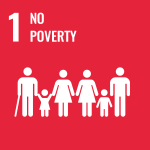
Relevant SDG targets
• By 2030 reduce at least by half the proportion of men, women and children of all ages living in poverty in all its dimensions according to national definitions.
• By 2030 ensure that all men and women, particularly the poor and the vulnerable, have equal rights to economic resources, as well as access to basic services, ownership, and control over land and other forms of property, inheritance, natural resources, appropriate new technology, and financial services including microfinance
Description
In line with one of the primary targets of SDG 1, which aims to “reduce at least by half the proportion of men, women and children of all ages living in poverty” by 2030, UNHCR is committed to ending poverty by advocating for refugees to work in their host country. When refugees are able to work, they become self-reliant and are able to provide for themselves and their families, increasing resilience, restoring dignity, and helping entire families to build independent and meaningful futures. For example, in Pakistan, Zakat funds increased the economic and social involvement of extremely poor refugees and host community members via the ‘poverty graduation’ project, in which the allocation of productive assets allowed families to launch small-scale companies. In many respects, this project aligns with another SDG 1 target: “by 2030, ensure that all men and women, in particular the poor and the vulnerable, have equal rights to economic resources, as well as access to basic services, ownership and control over land and other forms of property”.
In a macro sense, refugees, asylum seekers, internally displaced persons, and returnees comprise the communities who are most at risk for falling below the poverty line. That being said, Zakat and Sadaqah funds are a critical intervention for providing cash assistance to said communities – particularly Lebanon, Jordan, Iraq, Yemen, Mauritania, and Egypt – thereby helping families to meet their essential needs and preventing them from having to resort to negative coping mechanisms.
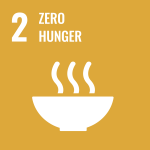
Relevant SDG target
• By 2030 end all forms of malnutrition, including achieving by 2025 the internationally agreed targets on stunting and wasting in children under 5 years of age, and address the nutritional needs of adolescent girls, pregnant and lactating women, and older persons.
Description
UNHCR has continually supported universal access to safe and nutritious food for the most vulnerable individuals and communities Through Zakat funds, UNHCR distributes multi-purpose cash assistance to refugees and IDPs in Iraq, Yemen, Lebanon, Jordan, and Egypt, enabling them to meet their urgent needs (i.e. food). Ensuring that these people have access to adequate, nutrient-rich food is essential for protecting the safety, health and well-being of millions who have been forced to flee.
A prime example lies in India, where Zakat funds helped improve the food security of refugees and host communities through the distribution of food rations to the most vulnerable families, including women, children, persons with disabilities, and the elderly. The positive results of these funds are proof of UNHCR’s commitment to a key SDG 2 target: “end all forms of malnutrition […] and address the nutritional needs of adolescent girls, pregnant and lactating women and older persons”.
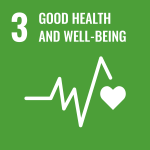
Relevant SDG target
• Achieve universal health coverage, including financial risk protection, access to quality essential health-care services and access to safe, effective, quality and affordable essential medicines and vaccines for all.
Description
UNHCR strives to facilitate access of refugees and host communities to national healthcare systems, a mission which connects to one of the SDG 3 targets: “achieve universal health coverage, including financial risk protection, access to quality essential health-care services and access to safe, effective, quality and affordable essential medicines and vaccines for all”. More acutely, Zakat and Sadaqah funds helped provide multi-purpose cash assistance to refugees and IDPs which enabled them to access services where there are often financial barriers, such as health clinics. Our monitoring shows that cash assistance is used in numerous ways, including essential treatments and medical care, doctor’s fees, and medication.
Additionally, Sadaqah funds have helped improve the health status of Sudanese refugees (and members of their host communities) living in the eastern part of Chad, thus enabling refugees to access essential healthcare services. These included hospitalizations, mental health and psychosocial support, essential medication for preventive and curative care, as well as providing medical equipment to health centres.
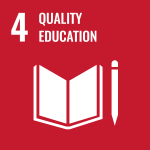
Relevant SDG targets
• By 2030, ensure that all girls and boys complete free, equitable and quality primary and secondary education leading to relevant and Goal-4 effective learning outcomes.
• By 2030, ensure equal access for all women and men to affordable and quality technical, vocational and tertiary education, including university.
Description
A fundamental target of SDG 4 is to “ensure that all girls and boys complete free, equitable and quality primary and secondary education”. Cash assistance provided by the Refugee Zakat Fund has proven effective in supporting access to said education by helping refugee parents with direct costs such as school fees, uniforms, transportation, and addressing other financial barriers that keep children out of school. More specifically, Sadaqah funds also helped in improving access to quality education for Sudanese refugees and nearby villages in eastern Chad. Young refugee students were afforded improved educational possibilities due to the construction and renovation of multiple classrooms, in addition to the maintenance of local schools.
The Refugee Zakat Fund has made similar efforts with regards to another SDG 4 target: “ensure equal access for all women and men to affordable and quality technical, vocational and tertiary education, including university”. The Fund has supported access to tertiary education through university fees, along with the provision of allowances for approximately 20 students by covering essential education expenses (i.e. books, transportation, and accommodation).
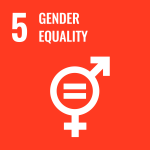
Relevant SDG targets
• Recognize and value unpaid care and domestic work through the provision of public services, infrastructure and social protection policies and the promotion of shared responsibility within the household and the family as nationally appropriate.
• Eliminate all harmful practices, such as child, early and forced marriage and female genital mutilation.
Description
Upon completing the vulnerability assessment framework to identify beneficiaries eligible for assistance, Zakat and Sadaqah funds in Lebanon, Jordan, Egypt, Yemen, Iraq, Mauritania, and Chad are then dedicated towards cash assistance to extremely vulnerable families – including female-led households and their children. This selection process is pursuant with one of the SDG 5 targets, which aims to “recognize and value unpaid care and domestic work”. Furthermore, cash assistance helps contribute to protection and gender equality by promoting self-reliance, assisting female entrepreneurs and empowering women to exercise decision-making in the household.
Crucially, Zakat funds help ensure that vulnerable populations do not resort to negative coping mechanisms stemming from poverty. When women and girls have equitable access to and control over resources and are able to meaningfully participate in and influence decision making processes, they are rendered less vulnerable to sexual exploitation, gender-based violence, child marriage, and forced labour. These positive outcomes fall squarely in line with another SDG 5 target: “eliminate all harmful practices, such as child, early and forced marriage and female genital mutilation”. Overall, equitable access to cash assistance helps facilitate a genuine and positive transformation in discriminatory gender relations, roles, and attitudes.
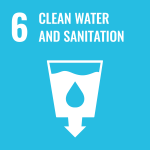
Relevant SDG targets
• By 2030, achieve universal and equitable access to safe and affordable drinking water for all.
• By 2030, substantially increase water-use efficiency across all sectors and ensure sustainable withdrawals and supply of freshwater to address water scarcity and substantially reduce the number of people suffering from water scarcity.
Description
UNHCR is committed to “achieve access to adequate and equitable sanitation and hygiene for all” by 2030, which is one of the targets for SDG 6. As such, the cash assistance provided by our Zakat funds to refugees and IDPs has been proven to help them access hygiene and sanitary products along with personal protective gear to protect them from COVID-19. A prime example is Chad, where Sadaqah funds helped Sudanese refugees and host communities access safe and clean water through the solarization of water pumps, namely solarizing boreholes which reduce the associated energy costs.
Moreover, access to water pumps was improved and water sources were built in schools to make sure that refugees have enough water to combat the spread of COVID-19. This simultaneously addresses another SDG 6 target – “[…] substantially reduce the number of people suffering from water scarcity”.
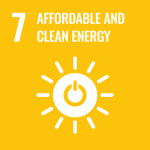
Relevant SDG target
• By 2030, ensure universal access to affordable, reliable and modern energy services.
Description
Access to safe and sustainable energy is a basic human need. Without it, the forcibly displaced – particularly women and children – are more vulnerable and have less time to rebuild their lives. At UNHCR, we are committed to addressing the energy needs of refugees, improving access to sustainable fuel, powering health centres, and utilizing solar-powered lighting.
Pursuant with this commitment and with the SDG 7 target of ensuring “universal access to affordable, reliable and modern energy services” by 2030 – Zakat funds were sent to Bangladesh to aid Rohingya refugees. Subsequently, the refugees were provided with liquefied petroleum gas (LPGs), which is available locally in Bangladesh and was assessed as the best fuel alternative for cooking. UNHCR and other partners carried out an assessment on the impact of the switch to LPG. The study found that LPG distribution has resulted in an 80% reduction of demand for firewood in the Rohingya households in the camps, reducing deforestation to well within sustainable forestry rates.
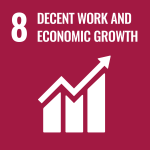
Relevant SDG target
• Promote development-oriented policies that support productive activities, decent job creation, entrepreneurship, creativity and innovation, and encourage the formalization and growth of micro-, small- and medium-sized enterprises, including through access to financial services.
Description
One of the main pillars of UNHCR’s work worldwide is to provide refugees, IDPs, returnees, asylum seekers, and stateless people with equal access to decent and sustainable work regardless of their gender, race, economic or legal status. UNHCR has contributed Zakat funds towards providing sustainable and decent work for vulnerable communities by supporting income-generating activities in Nigeria and small businesses in Pakistan, as well as providing refugees and displaced persons with the financial and educational resources to ensure that their business can thrive in the long run.
These aforementioned activities align UNHCR strongly with an SDG 8 target which promotes “development-oriented policies that support productive activities, decent job creation, entrepreneurship, creativity and innovation, and encourage the formalization and growth of micro-small- and medium-sized enterprises”. As further proof, UNHCR has also conducted livelihoods programs in several countries to ensure that refugees and IDPs can receive adequate support and training for employment, including but not limited to vocational training. Amplified access to life and work skills in youth hubs, opportunities to access skills and training, technical courses, internships, apprenticeships, business start-up grants, opportunities.
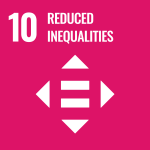
Relevant SDG target
• By 2030, empower and promote the social, economic and political inclusion of all, irrespective of age, sex, disability, race, ethnicity, origin, religion or economic or other status.
Description
Due to their legal status, refugees often do not have the right to formally work in their host countries, resulting in inequalities of outcome and opportunity. The legal status of refugees often prevents them from having equal access to shelter, healthcare, education, and other services. That being said, Zakat funds helped provide much needed assistance to vulnerable displaced families in Lebanon, Iraq, Jordan, Egypt, Pakistan, Bangladesh, and India, enabling them to meet their basic needs and access the essential services needed to rebuild their lives. This goes a long way towards achieving one of the key SDG 10 targets: “empower and promote the social, economic and political inclusion of all, irrespective of age, sex, disability, race, ethnicity, origin, religion or economic or other status” by 2030.
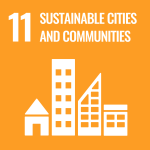
Relevant SDG target
• By 2030, ensure access for all to adequate, safe and affordable housing and basic services and upgrade slums
Description
Zakat funds helped provide cash assistance to vulnerable displaced families in Lebanon, Jordan, Iraq, Yemen, Mauritania, and Egypt. This assistance has allowed UNHCR to help families maintain access to safe and affordable housing by ensuring that refugees can pay their rent. Consequently, this has greatly reduced their risk of eviction, thereby complying with an SDG 11 target which wants to “ensure access for all to adequate, safe and affordable housing and basic services and upgrade slums” by 2030.
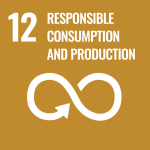
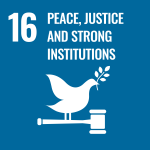
Relevant SDG target
• End abuse, exploitation, trafficking and all forms of violence against and torture of children.
Description
Zakat funds have helped provide vulnerable refugee families with cash assistance to reduce their reliance on negative coping mechanisms such as child labour, trafficking and child marriage. UNHCR also provides cash assistance to unaccompanied and separated children (UASC – i.e. children under the age of 18 traveling and living alone in displacement) to enable them to survive and access the care and protection they need, which contributes to a crucial SDG 16 target: “end abuse, exploitation, trafficking and all forms of violence against and torture of children”.
Moreover, in line with another SDG 16 target – “significantly reduce all forms of violence and related death rates everywhere” – UNHCR child protection programmes help prevent sexual and gender-based violence among unaccompanied children by ensuring that they have access to essential social services, including psycho-social support.
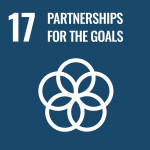
Relevant SDG target
• Encourage and promote effective public, public-private and civil society partnerships, building on the experience and resourcing strategies of partnerships.
Description
Among SDG 17’s numerous targets is to, “encourage and promote effective public, public-private and civil society partnerships” – without such partnerships, our advocacy for the most vulnerable refugees and IDPs would not be feasible. Hence, UNHCR has agreements in place with over thirty diverse partners globally around the topic of Islamic Philanthropy in order to, among other things, establish the infrastructure necessary to deliver vital cash assistance from the Refugee Zakat Fund.
For instance, in Egypt, refugees can collect their cash transfers from any of the 4,000 branches of the Egypt Post Office countrywide, while in Jordan cash assistance is provided through ATMs at the Cairo-Amman Bank. Refugees in Iraq are required to use EyePay, which is a biometric payment authentication system that has improved identification accuracy, speed and efficiency of cash delivery, and reduced fraud risks.

